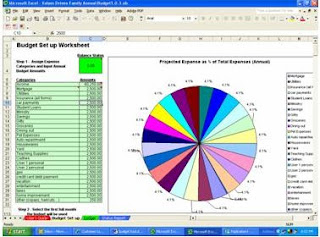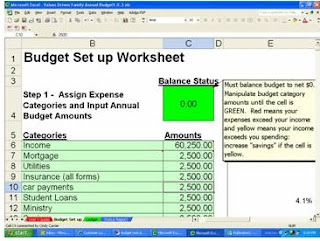The “Why” and “How” of Putting Your Kids to Work
We are blessed to have kids who contribute in a very measurable way to the smooth functioning of our home. That’s important when you have a family as large as ours. We’re also blessed to see the generally great attitudes that our children have toward their daily jobs.
However, these things didn’t just “happen.” We, as parents, had to train and encourage our children in this area, just as in every other area of their growth and development.
Why put your children to work? Well, besides the fact that it’s helpful for the management of the home in the short-term, think of the long-term benefits. What are we raising our children to do? Well, hopefully, to WORK. As adults, that’s our lot in life! Yes, we want our children to enjoy their childhood, but we have to prepare them for wage-earning adulthood. That starts at a very early age as we encourage the children to learn new tasks and contribute to the cleanliness of the home. If you give your children an allowance or payment for chores, this allows them to learn money management skills early in life, as well.
Working together as a family, with each member doing his or her part, also brings a sense of comaraderie. While playing together has its place (and its merits), our work gives us a common goal that really promotes team-building.
How do you put your children to work–especially if you haven’t started at a young enough age when children are most receptive to this type of training? Well, just do it! Sounds simple, but let’s think about some of the things that may help with this.
You’ve probably heard the expression, “The apples don’t fall far from the tree.” It’s a well-known saying because it’s true! So if you want your children to work diligently and have good attitudes toward their work, first you have to look in the mirror. Dads, do you come home and complain about your boss or talk about incidents at work in a negative ligt? Moms, do you drag your feet about keeping up with the house, or make comments like, “All I ever do is clean up after everyone else!” Unfortunately, we most often see our weaknesses as parents manifested in our children, rather than our strengths–so think about what you’re saying and doing as you go about your work and be willing to make any changes that may be necessary if you want to encourage your children to make progress in this area.
Once that important step has been tended to, then you can get to the more practical implementation. First, TRAIN your children properly in how to do any of the chores you will assign to them. This is key to experiencing success in this area. How would you feel if you were asked to do something but were not given the tools you needed, or the necessary instruction to make sure you knew how to do it properly? It would certainly be frustrating. So, no matter how much of an effort it is, or how difficult it seems for you as a parent to invest the time in training–think of what a pay-off there will be once you do the initial work that is required!
Start small children on small jobs. As soon as they can play with toys, they are old enough to pick them up. Even before our children can walk, we will bring the toy basket over to them and encourage them to “clean up” and put the toys in the basket when they are done playing. When I change a toddler’s diaper, she can throw it in the garbage. When I get her dressed, she can put her dirty clothes in the laundry. As young as 18 months, our children are helping their older siblings to unload the dishwasher (we keep all our dishes in a low and easily-accessible cabinet so that this task is easily done by even the littlest ones!). When it’s time to get ready to go somewhere, they can bring their shoes to Mom to be put on. They can throw things in the garbage as others go about with housekeeping chores. Every toddler loves to walk around with a broom, imagining that she is “helping”–so capitalize on this early imitation to encourage a love of work. Even if it’s not particularly helpful at first, it’s still instilling a positive lesson in your growing children.
As children age, provide them with more challenging jobs. Try to mix it up a little so they’re not always doing the same things. Our four-year-old recently was going through a really “whiny” phase and we decided to try to encourage her to do more “big girl” things. She was quickly trained on cleaning the bathroom sink and toilet and in changing her little sister’s diaper. Doing these different tasks–ones normally done by her older siblings–really helped her to show a little more maturity.
Let’s face it, we don’t all enjoy our work all the time! So if your children balk at one job in particular, perhaps have a sibling help them so they can enjoy some conversation while the work is getting done. Or, allow siblings to trade jobs with one another (as long as they can properly agree on this!) I try to put on some uplifting music during morning chore time, as well. This is also a good time for you, as a parent, to praise sincere effort and encourage the children to “work as for the Lord,” (Colossians 3:22-24) to stay diligent and do their best work (Proverbs 10:4), and to praise God for…all the things that are praiseworthy (even if the job at hand isn’t!–see Philippians 4:8).
Our favorite rule at “job time” comes straight from 2 Thessalonians 3:10 (NIV): “‘If a man will not work, he shall not eat'”–even our 2 year-old can quote this verse! We don’t eat breakfast (or snack, or dinner…whatever the next “meal” is) until everyone does their jobs. And when one child is done, he’s expected to go help a sibling to finish up their work (unless they’re not being diligent, of course–then they’re on their own, and the rest of us will eat without them. This doesn’t happen very often, but it does happen!)
What if the children complain? Well, personally–we try not to take it too personally. We all feel that way sometimes! But, it’s a good opportunity to encourage an attitude of praise. Remind them of what is praiseworthy. Remind them that you’re just doing your best as a parent to prepare them for a lifetime of work. Provide them with alternating periods of work and play or rest. A few minutes of relaxation on the couch, a read-aloud together, some free-play time, or just an enjoyable meal, can all be a reward for a job well done. Make sure to build blessings into the completion of work. Sometimes, when I see a child have a particularly good attitude toward his work, or if she is trying hard to do a thorough job, I’ll surprise them by offering them a little treat like a small candy or something. This goes a long way in encouraging children in their chores. But of course, words of praise are sometimes the best reward.
It’s important, too, that you are working along side of your children. Although you may not be doing the same job at the same time, if the children are doing chores, you should be busy, too, Mom! While sometimes I might want to use that time to tend to personal matters, it’s a good example to the children if we all engage in productive tasks together and work together to put our home in order. If the children complain about being asked to do something, I will gently point out what “I” am doing, and remind them that sometimes we all need to help each other. Usually they are quick to acknowledge this fact and are almost always willing helpers. On the other hand, what kind of example is it if I’m asking the children to do something simply for my convenience or because I’m too “lazy” to do it myself? Then they will feel “used,” and rightly so. It’s good for them to learn to serve, but they shouldn’t be made to be slaves! Chores that contribute to home management should be considered as “team-building” activities for the whole family.
You may find it helpful to post a family chore chart or other organizational tool so that everyone knows what they are expected to do each day. This really reduces stress for mom, particularly when there are lots of children in the house. It also may help to post a “clean room” checklist in a prominent location so that children can refer to the list to make sure they’ve done all the necessary steps for each task. When Mom does a “quality control check,” there are usually fewer things to correct if children have pre-emptive reminders in place. Visit our Web site at http://www.valuesdrivenfamily.com/ for free chore chart downloads and other practical tools for the family.
Please comment if you have anything that’s been particularly helpful in your home when it comes to the sometimes-challenging area of children and chores!




